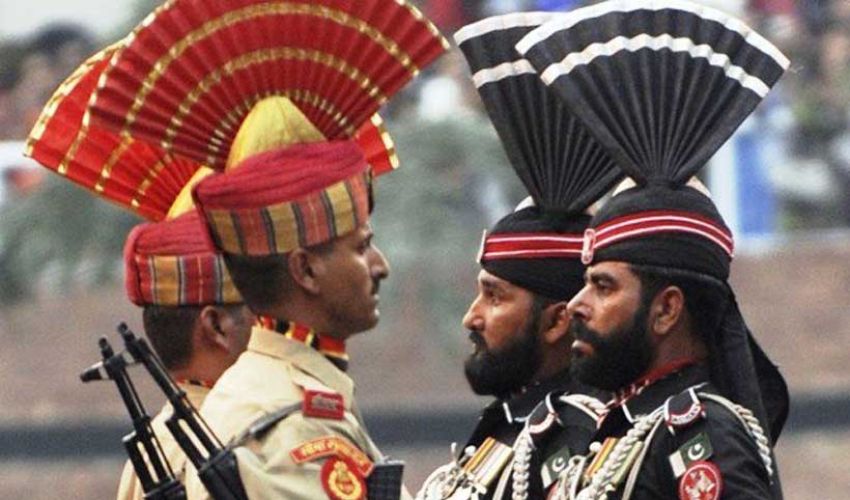The Supreme Court reserved its judgment on an appeal of former judge of the Islamabad High Court, Shaukat Aziz Siddiqui, against his removal from office.
A five-judge bench of the court, headed by Chief Justice of Pakistan Qazi Faez Isa, heard the appeal. The CJP said, if deemed necessary, the case could be re-heard.
At the outset of the proceedings, Siddiqui’s counsel Hamid Khan said that their case was about the Supreme Judicial Council conducting an inquiry first, as they would have got an opportunity to question former Inter-Services Intelligence (ISI) chief L Gen (retd) Faiz Hameed.
The chief justice asked if the judge could be removed even if his allegations proved correct during the inquiry despite the fact that he made those allegations in public.
The counsel asked the court to quash the initial proceedings against Shaukat Siddiqui. After that, a commission should be formed and an inquiry conducted afresh.
The CJP asked if the matter could be referred back to the Supreme Judicial Council. Hamid Khan replied in the affirmative.
Faiz Hameed’s lawyer Khawaja Haris said there were two different sides to this issue, one of which is that Shaukat Siddiqui levelled allegations in public.
The CJP said the allegations were also serious, adding that it was also a matter of independence of the judiciary. “You also agree that a judge should not be removed without a valid reason,” he questioned.
Also Read: Faiz Hameed denies allegations of influencing judiciary
Justice Jamal Khan Mandokhel asked if it was appropriate for a judge to level allegations the way he did, adding that the judge did not deny the speech.
“If a judge is removed only on the basis of a speech, half of the judiciary would go home,” CJP Isa remarked, adding that many judges addressed bar councils.
He also said that the text of the speech had to be seen, further saying that if the proceedings against the judge were quashed it would be akin to accepting his allegations as true.
Hamid Khan said that the report against Shaukat Siddiqui should be annulled and the matter remanded to the Supreme Judicial Council (SJC).
Khawaja Haris said Shaukat Siddiqui was no longer a judge so his case could not be sent to the SJC.
Haris said the then chief justice of the Islamabad High Court had denied Siddiqui’s allegations. If someone had approached Shaukat Siddiqui, he should have issued a contempt notice.
“Maybe he was frustrated to the point that he decided to go public,” the CJP remarked.
CJP Isa remarked that the case pertained to the independence of judiciary, adding that both Faiz Hameed and Shaukat Siddiqui belonged to institutions run on public money.
On the issue of the authority to proceed against a retired judge in the Supreme Judicial Council, the federation filed an appeal in the Aafia Sheherbano case, which terminated the authority to proceed against a retired judge.
The attorney general for Pakistan informed the court about filing the appeal.
The AGP said that if the verdict in the Aafia Sheherbano case was annulled, the present patter could be sent to the SJC.
The AGP suggested that an order could be issued In the Shaukat Siddiqui case to restore his privileges, adding that if the issue is seen in a broader context, it could be sent to the SJC. He further maintained that judges could not be removed without an inquiry as it was a matter of fundamental rights, suggesting that the government’s appeal in the Aafia Sheherbano case should be merged with this case.
Justice (retd) Anwar Kasi's lawyer Wasim Sajjad stated that the Constitution did not prevent the Supreme Court from remanding back a case.
Hamid Khan said this was the first case of its kind where a judge was removed without an inquiry. A detailed decision was needed on why an inquiry was necessary before removing a judge, he added.
According to the 1956 and 1962 constitutions, a judge could not be removed without a presidential reference, Hamid Khan said, adding that the same condition existed in the 1973 Constitution also.
In 2005, a mechanism other than a presidential reference was introduced in the Constitution for the first time, Hamid Khan said, adding that when Shaukat Siddiqui made the allegations, proceedings against former judge Anwar Kasi were underway in the Supreme Judicial Council.
Justice Hasan Azhar Rizvi asked if there was still a need for an inquiry when a judge's speech was clear and available. He remarked that there were also allegations of corruption against Shaukat Aziz Siddiqui.
“An inquiry is necessary in the case of Shaukat Aziz Siddiqui,” said counsel Hamid Khan.
Justice Mandokhel asked in what capacity the registrar can write a note to the SJC against a judge.
Justice Rizvi said the Supreme Court itself took notice of the case. “Should an inquiry be held even when the council acts on its own?” the judge asked.
The CJP remarked that the Supreme Court was not a watchdog on the Supreme Judicial Council, adding that the court has to maintain the balance created by authors of the constitution. The apex court only intervened over constitutional violations.
“In the present case, one has to be very careful so that the constitutional balance between the institutions is not disturbed,” the CJP remarked.
Justice Mandokhel questioned how the court can nullify the entire proceedings without an inquiry.
Sindh High Court Bar President Salahuddin said the Supreme Court should form a commission and conduct an inquiry. The CJP asked how the SC has the authority to constitute a commission. The counsel replied that it can do so in public interest.
Salahuddin said the SJC’s jurisdiction is limited. If the court wants, it can form a commission and inquire into Shaukat Siddiqui's allegations, he added.
He further said that the Supreme Judicial Council cannot take action against a retired judge.
The CJP replied that the court was examining only one point as to why an inquiry cannot be held.
Justice Mandokhel asked what the result will be if the allegations are proved false. “Will the annulled decision of the Supreme Judicial Council be reinstated?” he asked.
Barrister Salahuddin said if the allegations were proved false, criminal action could be taken against Shaukat Siddiqui.
“How is it possible to take criminal action against a former judge without the Supreme Judicial Council?” Justice Mandokhel asked.
The CJP remarked that if the counsel wanted restoration of the judge’s pension in his personal capacity then his application of Article 184(3) could be dismissed. “Will the restoration of a judge's pension restore the independence of the judiciary?” he asked.
Judges are not above the law, said Barrister Salahuddin.
Justice Irfan Saadat Khan asked if Shaukat Siddiqui was not guilty of misconduct, adding that everybody was just saying there was no inquiry.
“If his speech was contrary to the facts, Shaukat Siddiqui is guilty of misconduct,” Barrister Salahuddin said, adding that if the SJC had a problem with the speech being made in public, it could have found a solution.
The Supreme Judicial Council can either dismiss the charges or dismiss the judge, the CJP remarked.
Aafia Sheherbano case verdict challenged
Meanwhile, the federal government challenged the three-judge apex court verdict in the Aafia Sheherbano case about halting proceedings against retired judges or those who have stepped down.
An appeal against the decision was filed under the practice and procedure law. It has made the SJC and the apex court registrar parties, among others.
Faiz Hameed's reply
A day earlier, the former spy chief had vehemently denied the allegations of influencing the judiciary in this case.
In a response submitted to the Supreme Court through lawyer Khawaja Harris, Faiz Hameed refuted the claims that Shaukat Aziz Siddiqui mentioned an alleged meeting before the Judicial Council in his speech.
The reply emphasized that the alleged meeting’s request made by Siddiqui was unequivocally rejected, and Gen (retd) Faiz Hameed asserted that he never contacted the former judge.
In the broader context of the case, former Chief Justice of Islamabad High Court, Justice (R) Anwar Kasi, also submitted a response rejecting the allegations made by Shaukat Aziz Siddiqui. Brigadier (retd) Irfan Ramey’s reply was also presented, where he denied the accusations and meetings put forward by Shaukat Aziz Siddiqui.
Justice (R) Anwar Kasi asserted that no secret agency attempted to influence during his tenure. The response highlighted the need for Shaukat Siddiqui to provide any material supporting the allegations, but none was provided.
Furthermore, Shaukat Siddiqui raised concerns about the bench hearing indirect appeals, questioning the integrity of fellow judges. These developments add layers to the ongoing case, emphasizing the complexities within the judiciary and the need for a comprehensive examination of the allegations.



























